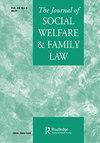No right to have rights: citizenship fees and judicial deference in PRCBC
IF 0.9
Q2 LAW
引用次数: 0
Abstract
In The Origins of Totalitarianism, Hannah Arendt ([1951] 1968, p. 177) famously characterised the right to citizenship as ‘the right to have rights’. Decades later, that view was endorsed by the Court of Appeal, which declared that ‘the right to nationality is an important and weighty right . . . properly described as the right to have other rights, such as the right to reside in the country of residence and to consular protection and so on’ (R (Pham) v SSHD [2018] EWCA Civ 2064 (para. 49)). In a similar vein, Lady Hale had earlier identified the ‘many benefits to being a British citizen’ as including ‘the right to vote, the right to live and to work here without needing permission to do so, and everything that comes along with those rights’ (R (Johnson) v Secretary of State for the Home Department [2016] UKSC 56 (para. 2)). More recently, however, the existence of a ‘right to have rights’ in the UK has been undermined by the Supreme Court decision in R (O (a minor) and The Project for the Registration of Children as British Citizens (PRCBC)) v Secretary of State for the Home Department [2022] UKSC 3 concerning the fees charged to children applying to acquire British citizenship by registration. The case was brought on behalf of O, a child holding Nigerian citizenship, who was born in the UK in 2007 and had lived there ever since. On this basis, she was eligible to register as a British citizen under Section 1(4) of the British Nationality Act 1981. However, while her family had been able to raise the funds to cover the administrative cost of the procedure (a little under £400), they could not afford the full fee, then set at £973 (now £1,012). The lower courts had found that, in setting the fees at this level, the Secretary of State had failed to discharge her duty under Section 55 of the Borders, Citizenship and Immigration Act 2009 to have regard to the need to safeguard and promote the welfare of children in the UK, but rejected the argument that the fees regime per se was ultra vires (R (PRCBC) v Secretary of State for the Home Department [2019] EWHC 3536 (Admin); R (PRCBC) v Secretary of State for the Home Department [2021] EWCA Civ 193). The latter was the sole ground of challenge to be appealed to the Supreme Court, which likewise found the fee regime to be intra vires, despite acknowledging that it is ‘designed to produce a substantial surplus’ (para. 3) and that ‘for many young people and their families the current level of fees is unaffordable’ (para. 5). In this brief comment, I wish to highlight the court’s restrictive conception of British citizenship rights and its deferent approach to executive discretion in this domain.没有权利拥有权利:中华人民共和国的公民权费和司法尊重
汉娜·阿伦特(Hannah Arendt,[1951]1968,第177页)在《极权主义的起源》(The Origins of Totalitarism)一书中将公民权描述为“拥有权利的权利”。几十年后,上诉法院认可了这一观点,宣布“国籍权是一项重要而重要的权利。适当描述为享有其他权利的权利,如在居住国居住和获得领事保护的权利等”(R(Pham)v SSHD[2018]EWCA Civ 2064(第49段))。同样,黑尔夫人早些时候也指出,“作为英国公民的许多好处”包括“投票权、在这里生活和工作而无需许可的权利,以及与这些权利相关的一切”(R(Johnson)诉内政部国务大臣[2016]UKSC 56(第2段)。然而,最近,最高法院在R(O(未成年人)和儿童登记为英国公民项目(PRCBC)诉内政部国务大臣【2022】UKSC 3案中关于儿童申请通过登记获得英国公民身份的费用的裁决,破坏了英国“拥有权利”的存在。该案件是代表O提起的,O是一名拥有尼日利亚公民身份的儿童,2007年出生于英国,此后一直居住在那里。在此基础上,她有资格根据1981年《英国国籍法》第1(4)条登记为英国公民。然而,尽管她的家人能够筹集到资金来支付手术的行政费用(略低于400英镑),但他们负担不起当时设定为973英镑(现在为1012英镑)的全部费用。下级法院发现,在将费用定为这一水平时,国务卿没有履行《2009年边境、公民身份和移民法》第55条规定的职责,即考虑到保护和促进英国儿童福利的必要性,但驳回了收费制度本身越权的论点(R(PRCBC)诉内政部国务秘书[2019]EWHC 3536(行政);R(PRCBC)诉内政部国务秘书【2021】EWCA Civ 193)。后者是向最高法院提出上诉的唯一质疑理由,最高法院同样认为收费制度是越权的,尽管承认它“旨在产生大量盈余”(第3段),“对许多年轻人及其家庭来说,目前的收费水平是负担不起的”(第5段)。在这篇简短的评论中,我想强调法院对英国公民权利的限制性概念及其在这一领域对行政自由裁量权的不同态度。
本文章由计算机程序翻译,如有差异,请以英文原文为准。
求助全文
约1分钟内获得全文
求助全文
来源期刊
CiteScore
2.00
自引率
13.30%
发文量
52
期刊介绍:
The Journal of Social Welfare & Family Law is concerned with social and family law and policy in a UK, European and international context. The policy of the Editors and of the Editorial Board is to provide an interdisciplinary forum to which academics and professionals working in the social welfare and related fields may turn for guidance, comment and informed debate. Features: •Articles •Cases •European Section •Current Development •Ombudsman"s Section •Book Reviews

 求助内容:
求助内容: 应助结果提醒方式:
应助结果提醒方式:


